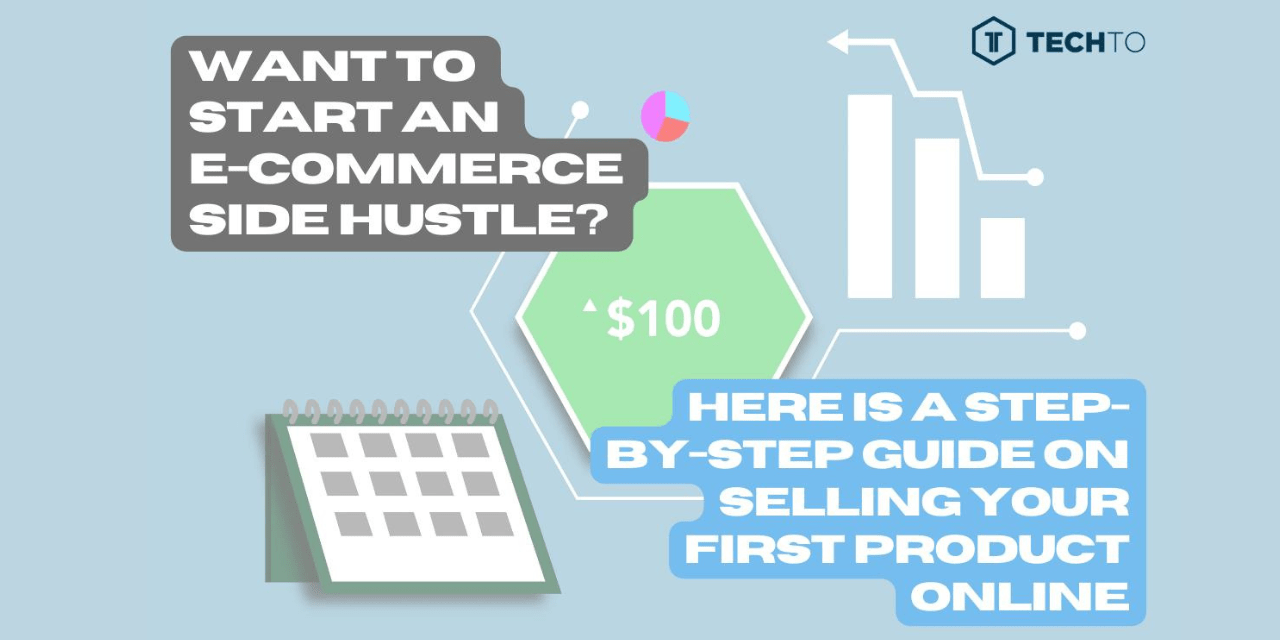In late 2019, e-commerce retail trade sales amounted to almost CAD$1.85 billion, with approximately 28.1 million Canadians having made purchases online, according to Statista.com. The COVID-19 crisis has only boosted the digital economy. As people embraced social distancing, they turned to online shopping more than ever before. 67% of consumers report they shop differently now due to COVID-19, as per NielsenIQ data. All this data can attest to the ever-growing need for and importance of online businesses. It is a great way to earn additional income on the side or pursue an entirely new entrepreneurship opportunity. My name is Samuel Abdelshahid, and I have sold more than 3,000 units online through two of my side-hustle businesses. Here are my top 5 tips for starting your side hustle online. |
 |
1. Conduct Design Thinking and Choose Your Product
Before figuring out how to sell online, you must first define the type of product and the problem you are solving. Design Thinking is a great way to do that. It is a design methodology that provides a solution-based approach to solving problems. It is instrumental in understanding and tackling complex problems, creating ideas in brainstorming sessions, and adopting a hands-on approach to prototyping and testing. Understanding the five stages of the design thinking methodology will empower you to apply the Design Thinking methods to solve complex problems around us. ● Stage 1: Empathize — Research your users’ or industry’s needs.
● Stage 2: Define — State your users’ needs and problems.
● Stage 3: Ideate — Create and challenge assumptions and form ideas.
● Stage 4: Prototype — Start to create solutions or simply storyboard them.
● Stage 5: Test — Try your solution on an MVP basis and get market validation.
Niche Products
Having a side hustle does not necessarily require you to spend many work hours. To separate it from your full-time job, look for a product that caters to a niche market to avoid competition from big players that saturate most of the market.
2. Create a Business Model Canvas
Once you have your product idea or business solution, you will need to create a business model before you start implementing the solution. A business model canvas (BMC) is a great tool to help establish the foundation for that and helps in enhancing your business as it evolves.
It is essentially a one-page visual representation document that addresses the overarching and most important elements needed to launch your business. Understanding how an organization creates, delivers, and captures value is an essential foundation for success.
BMC consists of nine essential components, including customer segments, value proposition, revenue streams, channels, customer relationships, key activities, key resources, key partners, and cost structure, as described in the following table. |
 |
3. Source Products & Build Your Online Platform
Today, you do not need to design or manufacture your own product to own a side-hustle business. The idea of a side hustle is to automate the process as much as you can and find others to help you out in the process. For example, instead of manufacturing your product, you can source it from B2B websites, such as Alibaba, or Dropshiping websites such as Spocket. Dropshipping is a well sought-after way of selling products. You can offer new products immediately or stop selling slow-moving products in a dropshipping business.You can then place those products on an e-commerce platform. The emergence of e-commerce platforms, like Shopify and Square, has made it easy for anyone who does not have much experience in website development to set up an online store and start selling their products quickly. Depending on what you are selling, you can find platforms with as many or fewer customization options to put your business together. It is essential to define your target audience and niche segment from the beginning, making marketing more manageable in the long run. For example, if you are selling high-end skin cream, your brand probably should not be on eBay or Wish, or if you are using a custom print company to make t-shirts, mugs, and other products, you should take proper measurements and display them on product pages. Finding the perfect online e-commerce platform is not difficult once you have determined the scope of your business or side hustle.
Amazon, Etsy, Walmart, eBay, Zazzle, and Facebook Marketplace are among the most popular platforms that sell products online. You can also connect your website to social media markets like Instagram or Facebook markets to gain additional visibility.4. Manage Payments, Shipments, and Returns These e-commerce platforms have point of sales (POS) systems and payment processors, so you can quickly start charging money for your creations. However, it would be good to register as a sole proprietor or an LLC. Even as a side hustle, this will be better in the long run for your income tracking and taxes. You should also keep a check on your margins. You need to have a simple sheet that shows all your expenses and revenues to ensure healthy margins.Delivery and shipping are also important to consider. If you are importing from another country, you will have to factor in the regulations, taxes, and duties specific to the product you are importing and the country you are importing from. Free shipping is often a good tactic for getting customers to buy, but you have to absorb the shipping costs yourself. Offering sales or other incentives might be better if shipping costs are trending upwards from your chosen carrier in your region. Lastly, before you start selling online, you must comply with the rules and regulations of online selling, including the return policy and process, and place it on the website.
5. Market Products Online
Once you have the foundation of your business and are ready to sell, you will need to create some marketing goals for your business, considering the stage or the market your business is in. It could range from developing awareness, visibility, reach, engagement, and conversions. You need to align your strategy with your customers’ changing online behavior, and the first step is to understand the trends influencing their shopping and buying decisions.
There are several ways to advertise, from social media to PPC ads, and you will generally want to promote across multiple channels.
Following are some of the leading ways to market products online: This is a TechTo feature article, contributed by OneEleven Operations & Scale-ups Community Manager Samuel Abdelshahid.
|
Other articles
From Vision to Valuation: Empowering Emerging Companies with Simple Agreements for Future Equity (SAFEs)
From Vision to Valuation: Empowering Emerging […]



